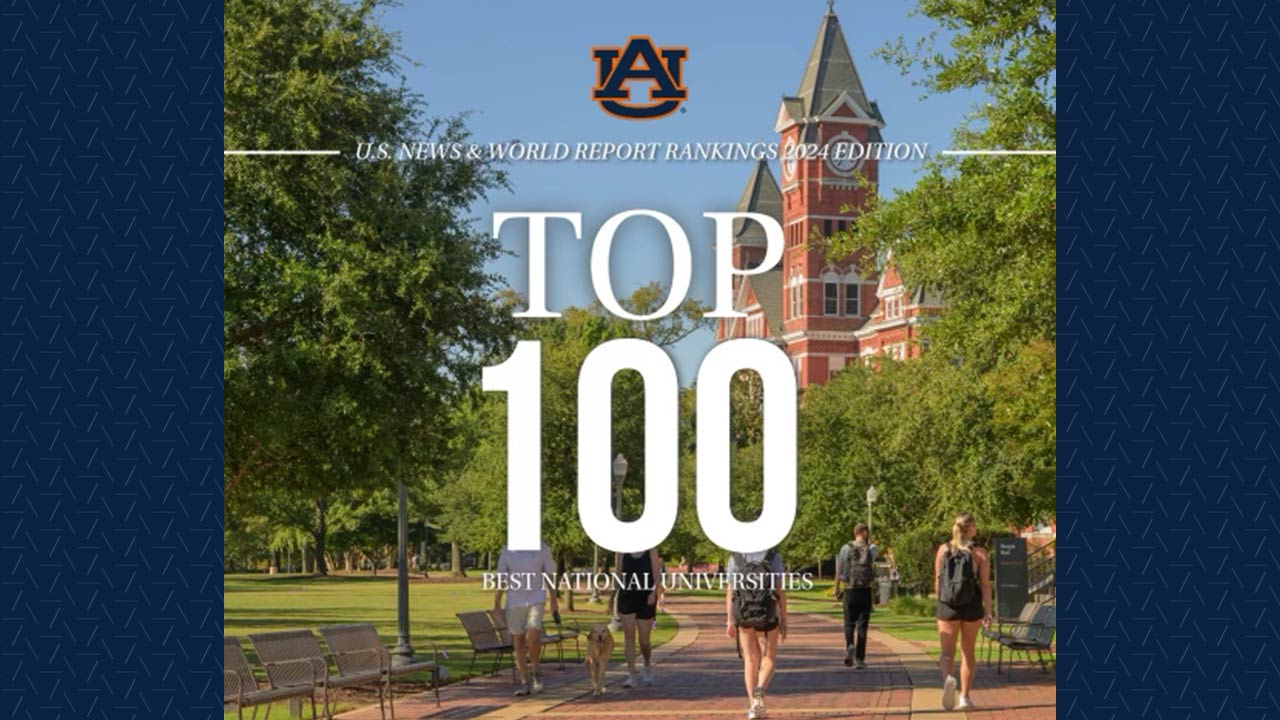content body

Following the release of U.S. News & World Report’s 2023-24 “Best Colleges” edition, Auburn University advanced its position as one of the nation’s top 100 universities, rising by four spots since last year to the rank of No. 93, and reaffirmed its standing as one of the country’s top 50 public institutions at No. 47.
Published annually, the guidebook evaluates more than 400 colleges and universities to develop a compilation of institutional metrics, including academic quality, social mobility, value and student outcomes — key areas where the university has made strategic investments and important factors among prospective students and families.
“Auburn’s mission is to provide our students with an exceptional experience that prepares them for life and, more importantly, to contribute their knowledge and talents for the public good,” Auburn President Christopher B. Roberts said. “While these rankings certainly reflect the extensive and exceptional efforts of our faculty and staff to deliver innovative academic programs, they also reflect our institution’s commitment to improving real and measurable student outcomes.”
The annual report offers insights into various institutional categories, highlighting a rise among several undergraduate programs and placing Auburn above several public peer institutions. Notable rankings include programs in the Harbert College of Business, including supply chain management (No. 15) and business analytics (No. 29), and programs in the Samuel Ginn College of Engineering (No. 53), including computer science and software engineering (No. 82). Auburn was again ranked for its undergraduate programs for student veterans (No. 63), aligning with the university’s continued status as a Military Friendly® school by G.I. Jobs.
The new rankings come as Auburn reports record enrollment this fall, including the largest freshman class in the university’s history as well as strategic advancements in several institutional performance indicators, including the university’s first-year retention (93%), graduate employment (84%) and six-year graduation (79%) rates.
As the university remains focused on delivering rigorous, and relevant academic programs, it continues to expand opportunities for students to engage in high-impact practices, including internships, cooperative education, study abroad and undergraduate research.
The most recent edition is available online at www.usnews.com/colleges.




